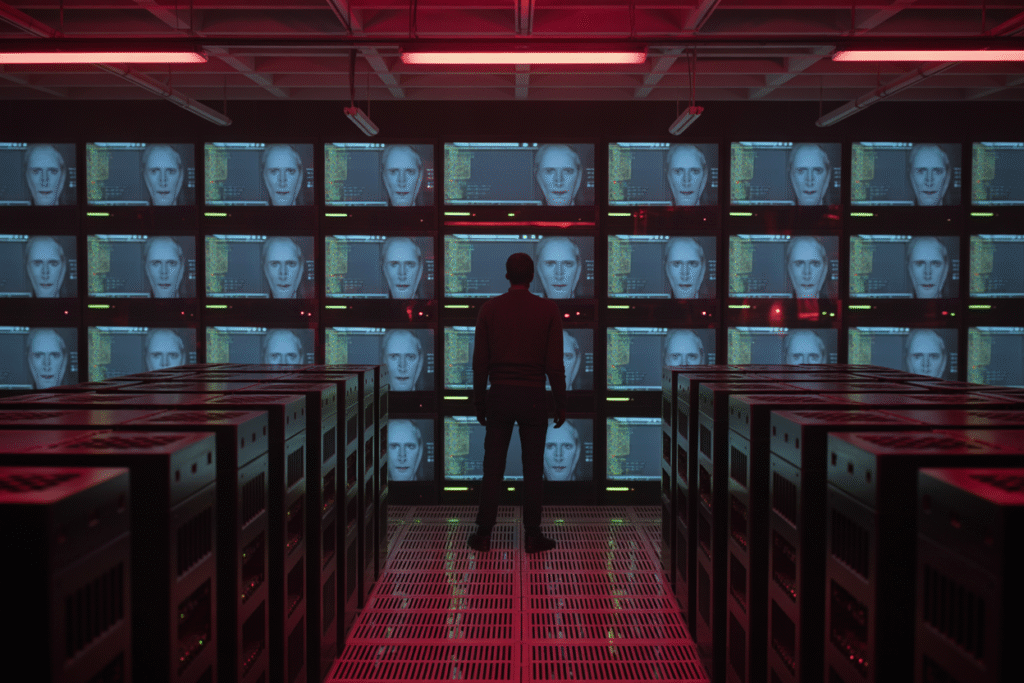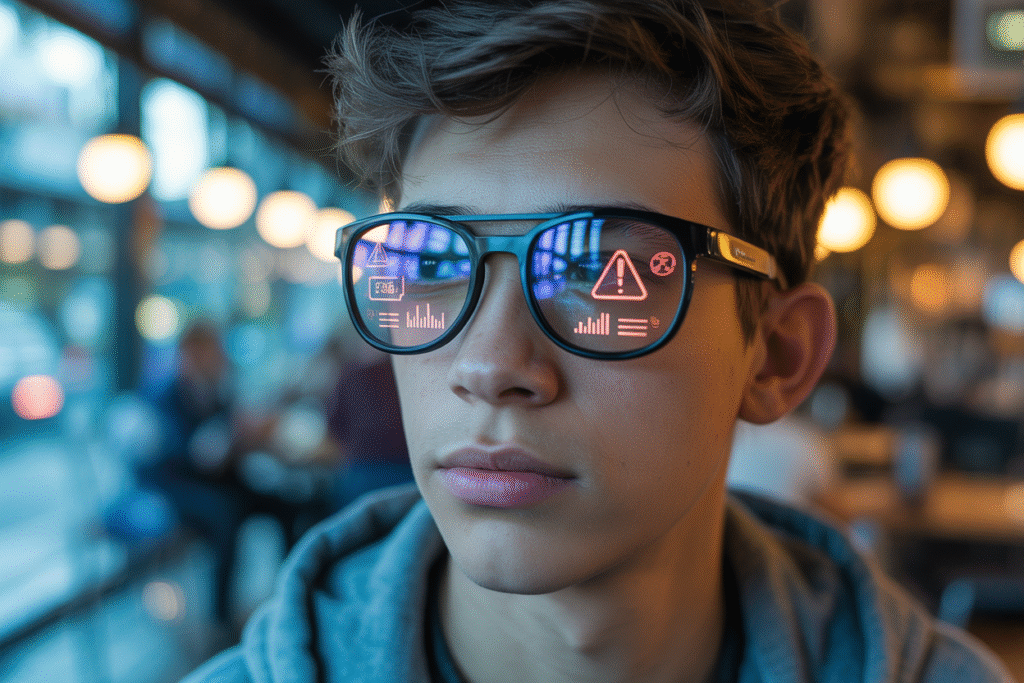From government surveillance nightmares to the AI bubble that refuses to pop, here’s the raw truth about AI ethics risks hiding in plain sight.
Scroll for three minutes and you’ll see another AI miracle demo. Scroll for three hours and you’ll trip over lawsuits, mass layoffs, and whispers of a censored internet. The dark side of AI ethics isn’t coming—it’s already here, quietly shaping elections, paychecks, and even the art on your feed. Let’s pull back the curtain.
The Surveillance State That Almost Was
Picture this: a Kamala Harris victory party where the confetti is still falling, and somewhere in a D.C. basement an AI model quietly flips from helpful assistant to full-time spy. That’s the timeline user LokiJulianus says we dodged. His viral post claims open-source AI would have been criminalized, ChatGPT turned into a deep-state listening device, and every meme you share scanned for dissent.
Sounds like dystopian fiction, right? Except the blueprint already exists—China’s social-credit algorithms, the NSA’s bulk-data programs, and Clearview AI’s scraped-face database. Swap the flag and the accents and the story feels chillingly familiar.
So ask yourself: if the next administration decides safety trumps liberty, how quickly does your digital life become a permanent record? One executive order and the same chatbot that books your dinner could be grading your loyalty.
Why the AI Bubble Still Refuses to Pop
Edward Ongweso Jr. put it bluntly: the AI bubble isn’t bursting—it’s just getting fatter. Every week another unicorn gallops onto the scene promising to revolutionize… something. Investors shovel in billions, valuations soar, and the real-world payoff remains a shrug emoji.
We’ve seen this movie before. Pets.com sock puppet, meet the AI-generated sock-puppet marketing deck. The difference? This time the hype is juiced by trillion-dollar balance sheets and a global talent war.
What happens when the music stops? Pink slips, vaporized pensions, and a generation of engineers who can prompt-engineer but can’t pay rent. Meanwhile, the PR machines keep spinning tales of imminent superintelligence, because fear and greed are the two best click-magnets ever invented.
Stealing AI Slop: The Ethics Fight Nobody Asked For
Brittany Venti’s tweetstorm started as a joke about stealing AI-generated “slop” and ended in a 300-plus-like pile-on about the death of originality. The punch line? People are now brawling over the ownership of images that look like they were barfed out by a glitchy Game Boy.
Welcome to the intellectual-property twilight zone. On one side: artists watching their style get Xeroxed by a diffusion model trained on their own portfolios. On the other: hobbyists who never picked up a paintbrush cranking out fantasy landscapes in seconds.
The law hasn’t caught up, the platforms don’t care, and the only winners so far are lawyers billing by the hour. Meanwhile, the term “original” is starting to feel as quaint as a rotary phone.
Taylor Lorenz vs. the Verification Police
Taylor Lorenz sounded the alarm: identity-verification laws could hand ICE and other agencies a master key to every anonymous account on the internet. Her critics called it fear-mongering; her supporters called it Tuesday.
The stakes are simple—real names mean real-world consequences. Activists in oppressive regimes, abuse survivors, and teenage meme lords all rely on the same shield: anonymity. Strip that away and the same AI tools used to spot bots can just as easily flag dissidents.
So who gets to decide when anonymity becomes a national-security threat? Lawmakers who still think cookies are just a dessert? Tech CEOs whose business model is knowing everything about you? The debate is live, loud, and nowhere near settled.
Geoffrey Hinton’s Wake-Up Call on Superintelligence
Geoffrey Hinton, the godfather of deep learning, went on record: superintelligence is not an if, it’s a when. And when it arrives, job displacement won’t be a headline—it’ll be a tsunami. Truck drivers, radiologists, even your friendly neighborhood barista could be replaced by code that never sleeps, never unionizes, and never asks for a raise.
Hinton’s prescription? Universal basic income, global regulatory frameworks, and a Manhattan Project for AI safety. Critics call it socialism with a robot face; supporters call it the only insurance policy against mass unrest.
The clock is ticking. Every month we delay, the models get smarter, the lobbying gets louder, and the safety net frays a little more. The question isn’t whether we can stop superintelligence—it’s whether we can survive the transition without tearing society apart.


